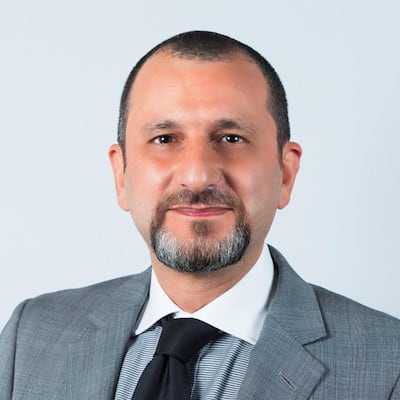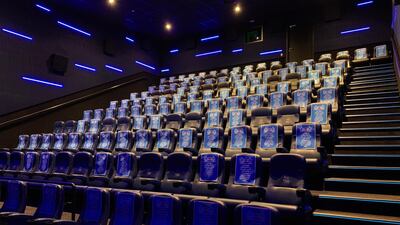It has been a tough few months for the cinema business. The challenges brought on by the coronavirus pandemic have been some of the most taxing in the industry’s history. As the pandemic spread, cinemas across the country were forced to close, for understandable reasons.
However, even when restrictions began to ease and cinemas started to reopen across the UAE in late May, it seemed like the troubles were only beginning. With a series of major releases and productions postponed, there was a scarcity of new material. So cinemas had to reconsider what to show on their screens.
“The biggest challenge we faced when we reopened was the lack of new content as studios postponed the release dates of major movies,” Toni Massih, chief content officer at Vox Cinemas, says. They also wanted to continue showing content that catered to different tastes and demographics he says.
"When we first reopened, we screened a number of Marvel titles such as Black Panther, Doctor Strange and Thor, DC movies such as Wonder Woman, Aquaman and Shazam, as well as popular movies that were released prior to the closures, including Bad Boys for Life, Bloodshot and Knives Out," Massih says.
"The backlog of content has forced us to be more innovative and look to new regions for content. For example, we are currently showing Asian horror movies Peninsula and The Bridge Curse."

While consumer sentiment is improving, Massih says some are still cautious about returning to public places. Health and safety regulations play a large role in convincing audiences to return.
“We have put extensive measures in place so that guests can enjoy an exhilarating big-screen experience with added peace of mind,” Massih says.
Overall admissions have been severely affected by the pandemic, but Massih points out that the string of new blockbuster releases, including Tenet, Mulan and The New Mutants, have led to a noticeable rise at the box office.
"We are confident that bookings will continue on an upward trajectory, particularly with a stellar line-up of new movies to get excited about in the coming months, including the Jackie Chan movie Vanguard, parts of which were shot in the UAE, and No Time to Die, the latest instalment in the James Bond franchise," Massih says.
In addition to new movie releases, the cinema has also been looking to screen alternative content. In the next few months, Vox will be showing English Premier League matches, as well as a series of Red Bull extreme sports documentaries.
“In December, we are live-streaming an opera from Spain to meet a previously untapped demand for high culture from people who would otherwise not have the opportunity to see these performances,” he says.
The cinema is also looking to continue screening local and regional films. Last year, its parent company Majid Al Futtaim signed an agreement with Image Nation Abu Dhabi and MBC to launch a major production partnership for films across the Mena region.
"This partnership will greenlight several projects annually, representing a significant boost to the region's growing film, TV and entertainment industry, particularly in Saudi Arabia, the UAE and Egypt," Massih says. "We also signed an exclusive distribution deal with the Saudi Arabian animation studio Myrkott to screen their first animation feature film Masameer across the Middle East and North Africa."
Massih says audiences have been craving content from the region, which they experienced with Born a King, a film Majid Al Futtaim distributed regionally and released in cinemas last year.
“It was a huge hit with cinema-goers across the GCC,” he says, adding that one challenge regional works face is that their production tends to be slower than mainstream blockbusters with studio backing.
“Despite the challenges, we’re really excited to see Arab films garnering greater global attention in recent years and getting the recognition they deserve at prestigious film festivals such as the Oscars, Sundance and Cannes.”


